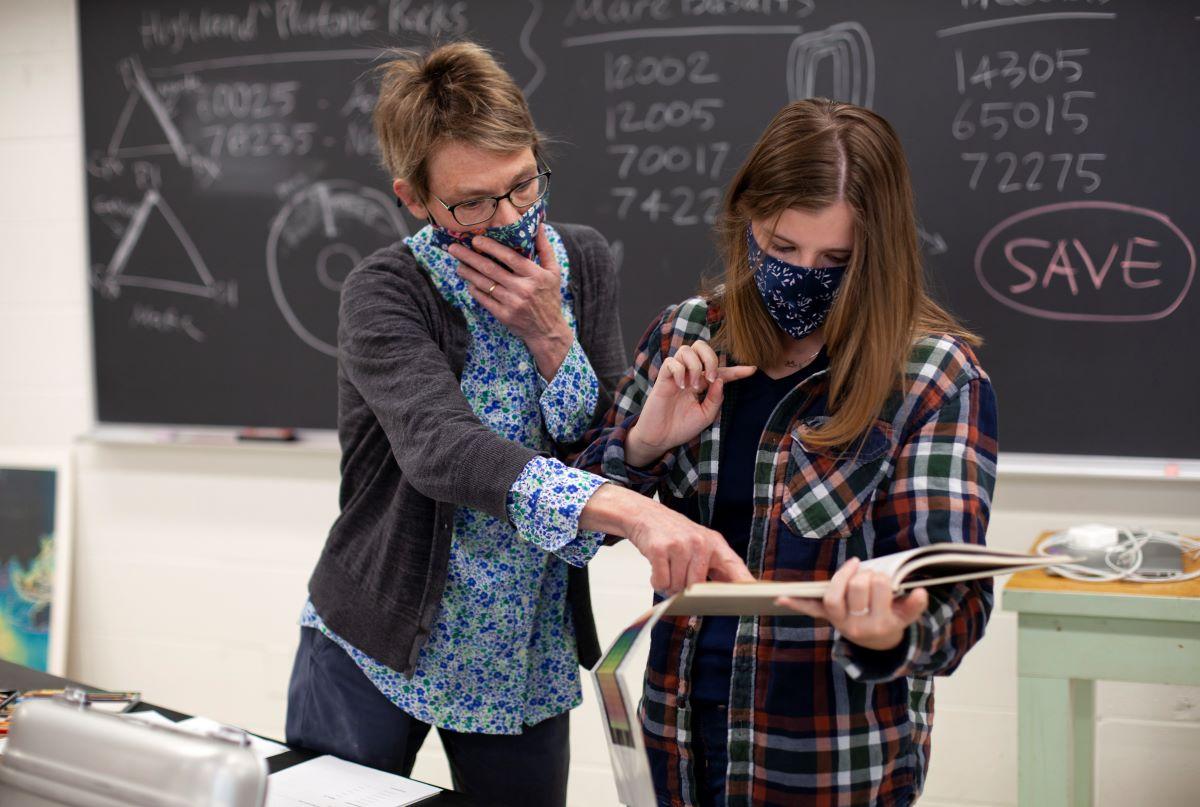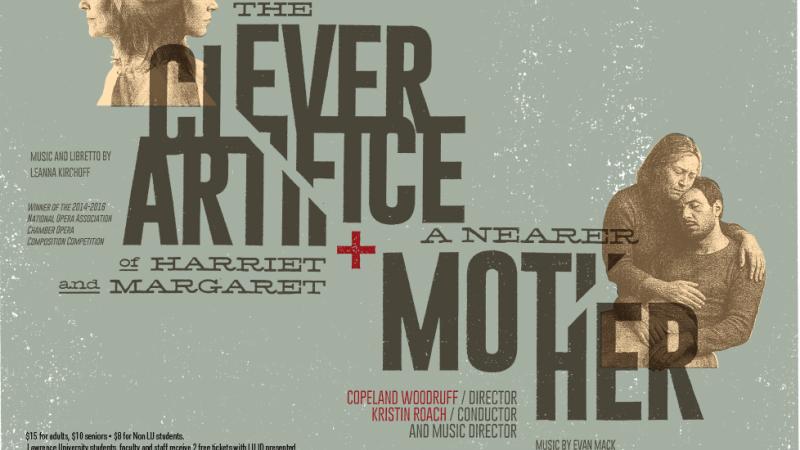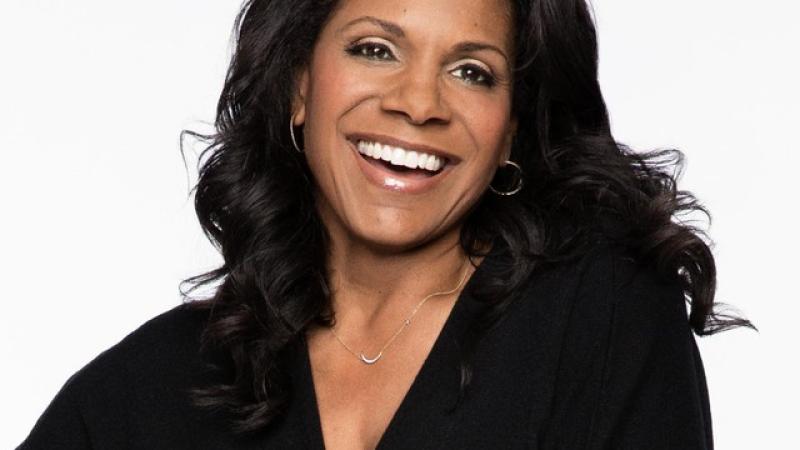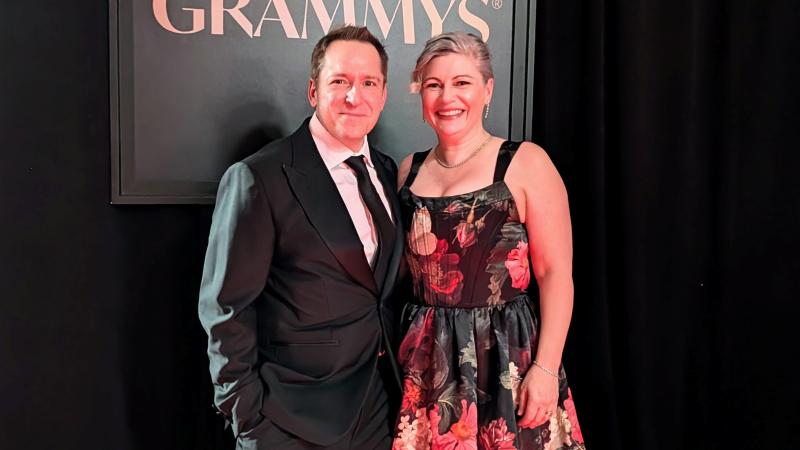We are heading into Teacher Appreciation Week, giving us an opportunity to shine a light on the Lawrence University faculty, which has innovated, adjusted, readjusted, inspired, and experimented over the past 14 months, all while helping guide students through steep and ever-changing pandemic challenges.
Through it all—and it’s not over yet—the faculty has kept Lawrence’s academics robust and transformational.
Many of our faculty members have shared words of wisdom along the way. Or showed their ongoing commitment in the face of uncertainty. In honor of Teacher Appreciation Week (May 2-8), we’ve dug into our story library to share some of those wise words and actions in this A-to-Z guide. This is just a sampling, of course. Many others have responded in amazing ways.
A: AP assist
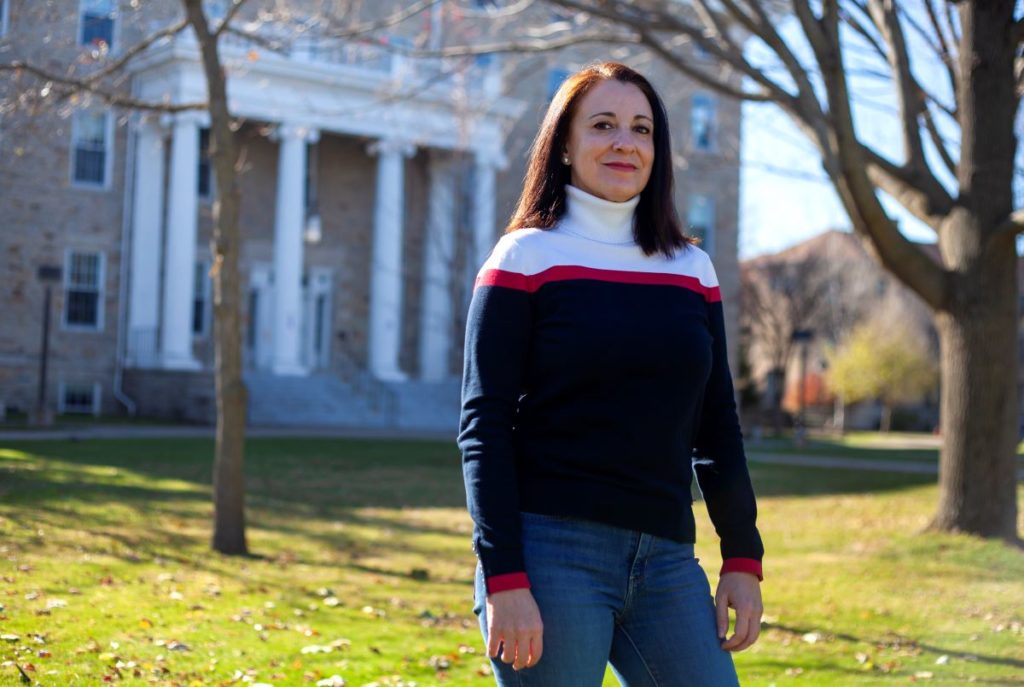
Rosa Tapia
“The topic is pertinent to the AP curriculum, naturally, but I chose Miguel de Unamuno in particular because his influence can be felt today with a clear sense of relevance and urgency.” / Rosa Tapia, professor of Spanish, on joining colleagues Gustavo Fares (Spanish) and Beth De Stasio (biology) in contributing virtual video lectures to College Board’s AP Daily, a YouTube series aimed at helping high school Advanced Placement (AP) students during the pandemic.
B: Brainstorming the music
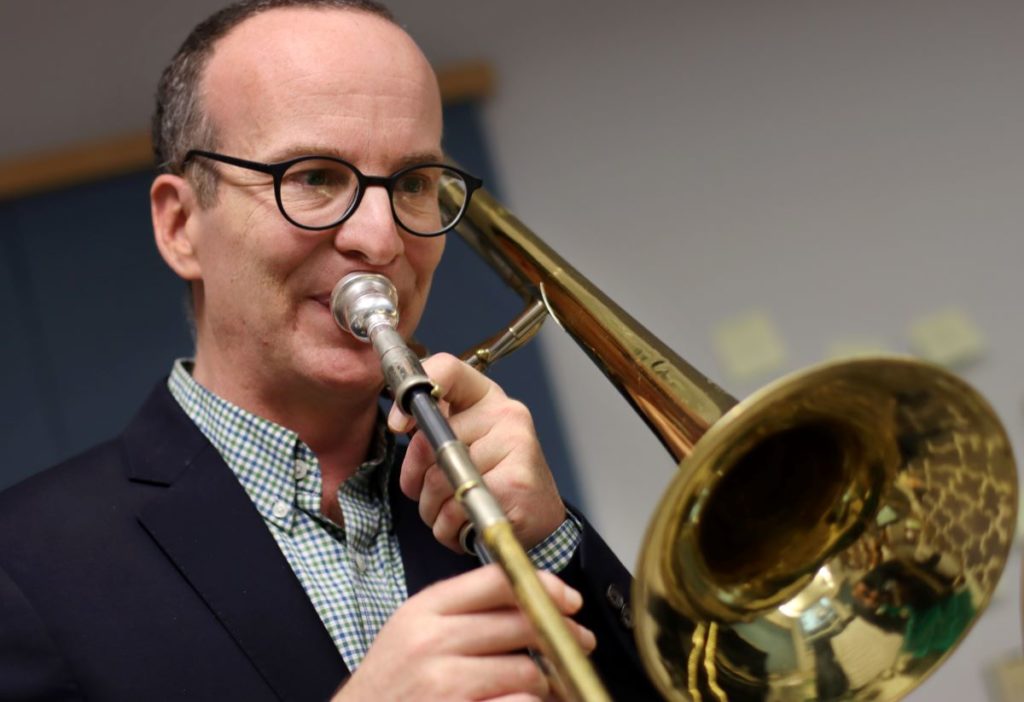
Tim Albright
“Most of these folks are gigging, working musicians on the cutting edge of performance today, so for my students to get to interact with them in their living rooms is a huge opportunity that we wouldn’t have normally.” / Tim Albright, trombone professor, on bringing professional musicians from around the world into classes via Zoom.
C: Costumes to de-stress
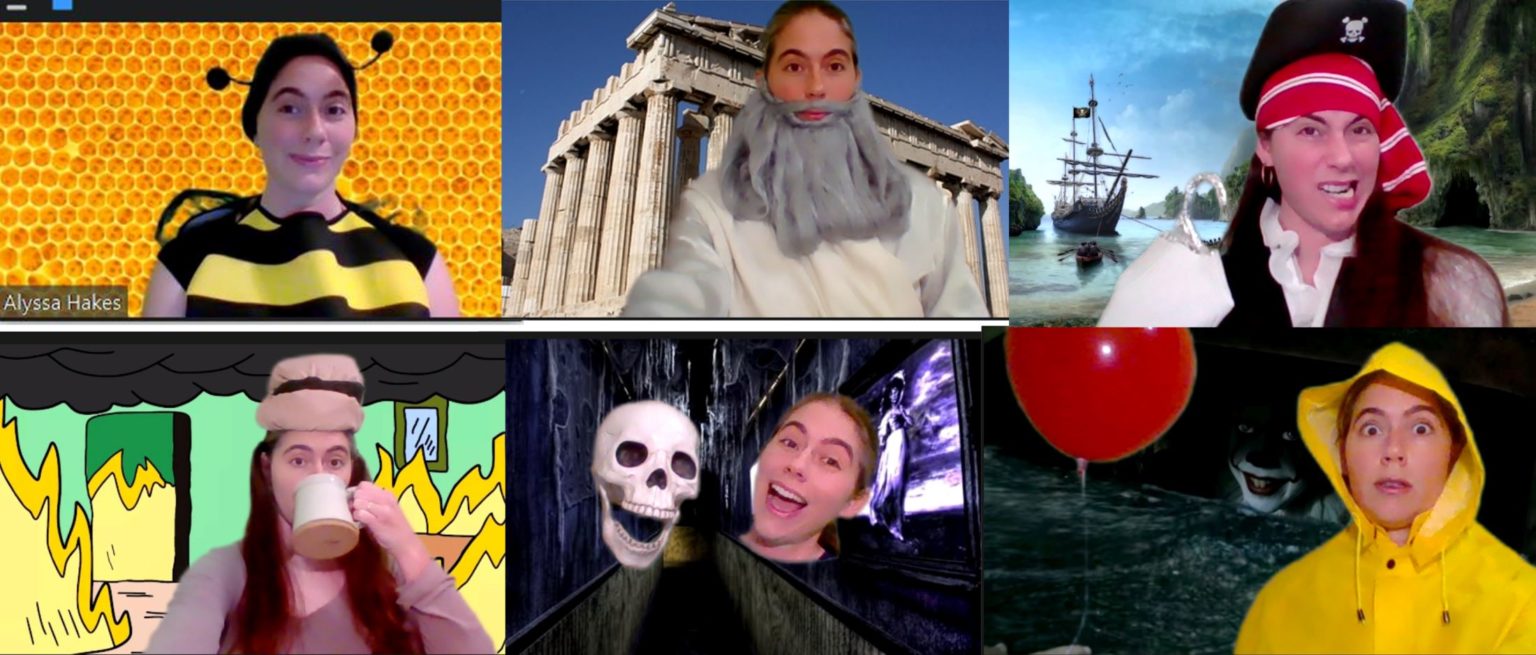
Alyssa Hakes
“The Zoom costume teaching strategy seems to have the intended effect of lifting morale during a year where it has been difficult to be a student.” / Alyssa Hakes, associate professor of biology, on wearing pop culture-inspired costumes for her Zoom lectures.
D: Disasters in real time
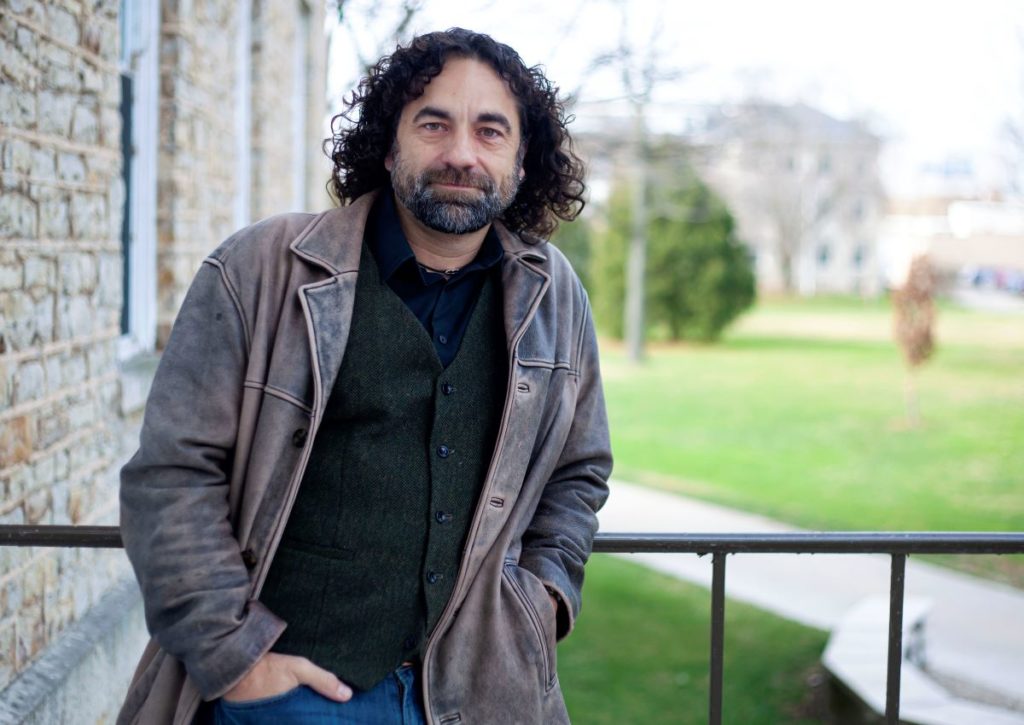
Jake Frederick
“I think in any class, whether it’s history or English lit or physics, when students see what they’re studying unfolding in the world they’re living in, they always find that very stimulating.” / Jake Frederick, professor of history, on incorporating pandemic developments into his Disasters that Made the Americas class.
E: Ethnic Studies win
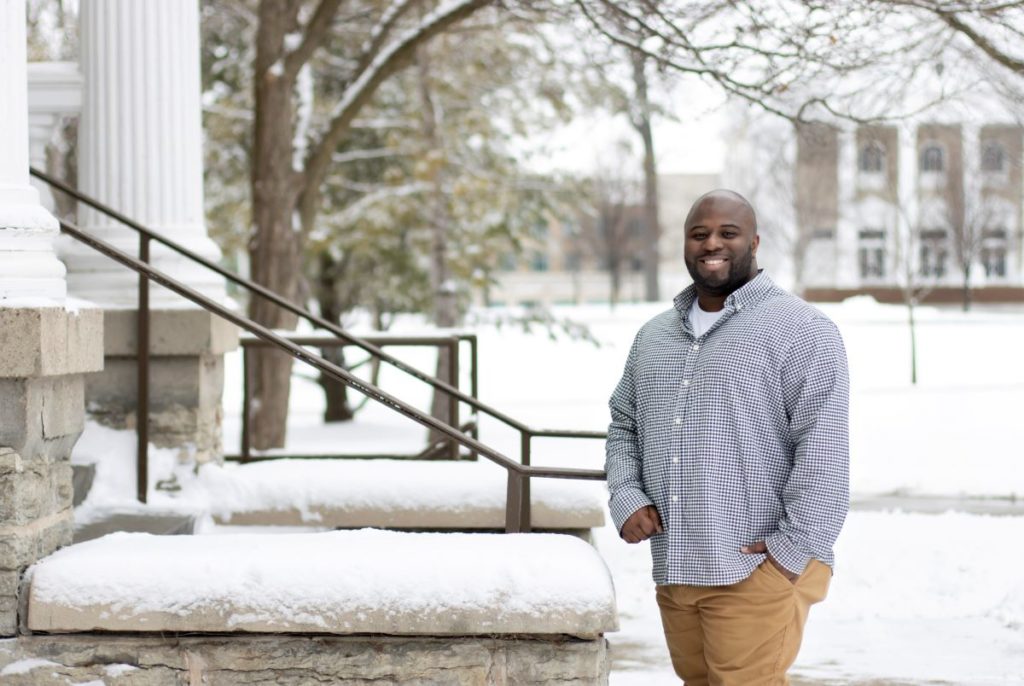
Jesús Gregorio Smith
“I believe it’s time liberal arts colleges and Ethnic Studies programs get this level of recognition. This fellowship is really about aiding teachers who are dedicated to diversity and racial justice in conducting and finishing their research so that their work is taken seriously in the academic community and so that their dedication to racial justice is amplified.” / Jesús Gregorio Smith, assistant professor of ethnic studies, on receiving a 12-month Career Enhancement Fellowship that supports the career development of underrepresented junior faculty in the arts and humanities.
F: Fresh take
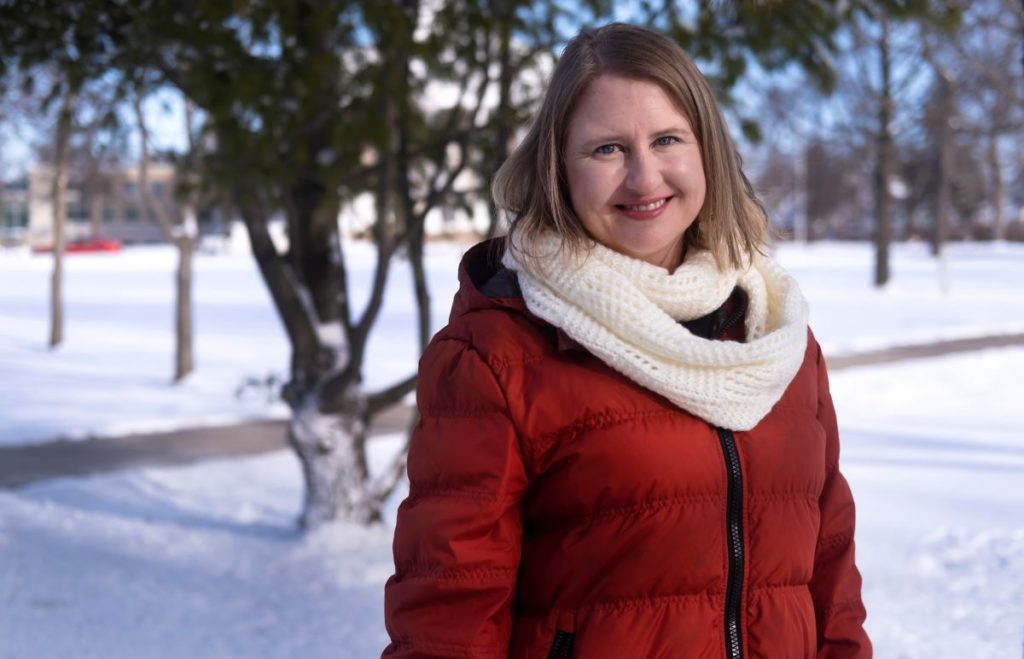
Celia Barnes
“I recognized that there was a beauty and weirdness to the literature—and that women and people of color, and not just bewigged white men, were writing it. I was hooked; the rest is history. When I tell this story to my students, I insist that they will be hooked, too, after a novel or two. And many of them are.” / Celia Barnes, associate professor of English, on the joys of teaching 18th-century literature in a 21st-century world.
G: Global thinking
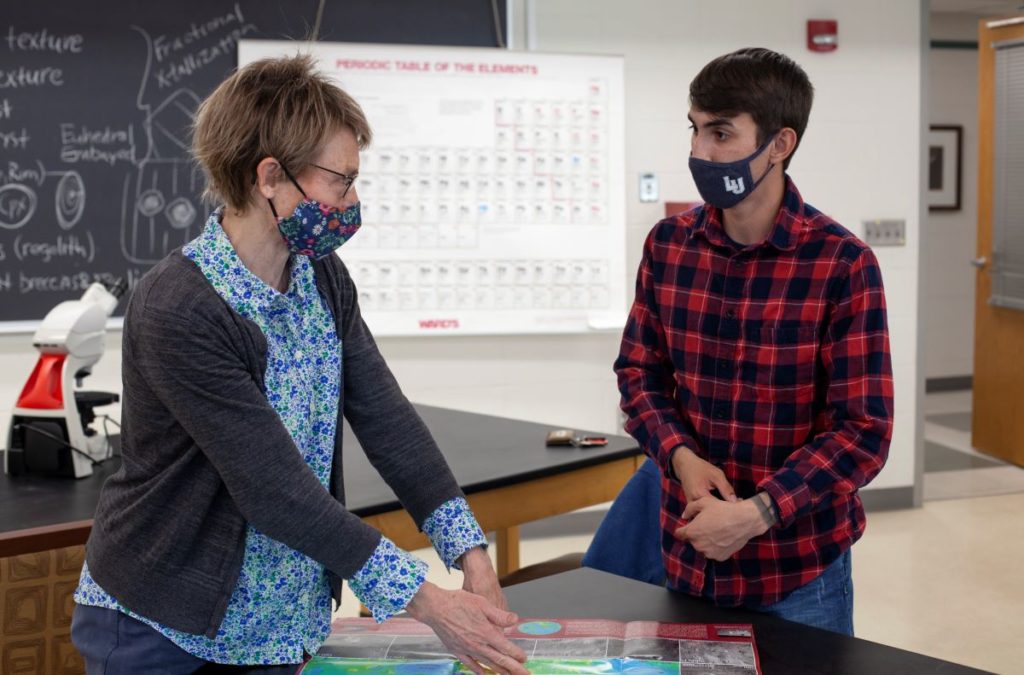
Marcia Bjornerud
“Students today need a different conceptual tool kit to be ready for work or graduate study in the environmental studies. Fortunately, Lawrence science faculty members have expertise spanning all aspects of the environment, from the chemistry of the atmosphere, water and soils; to terrestrial, freshwater and marine ecosystems; to climate and global change over a wide range of time scales.” / Marcia Bjornerud, Walter Schober Professor of Environmental Sciences and professor of geology, on the value of Lawrence’s new environmental science major.
H: Holiday time
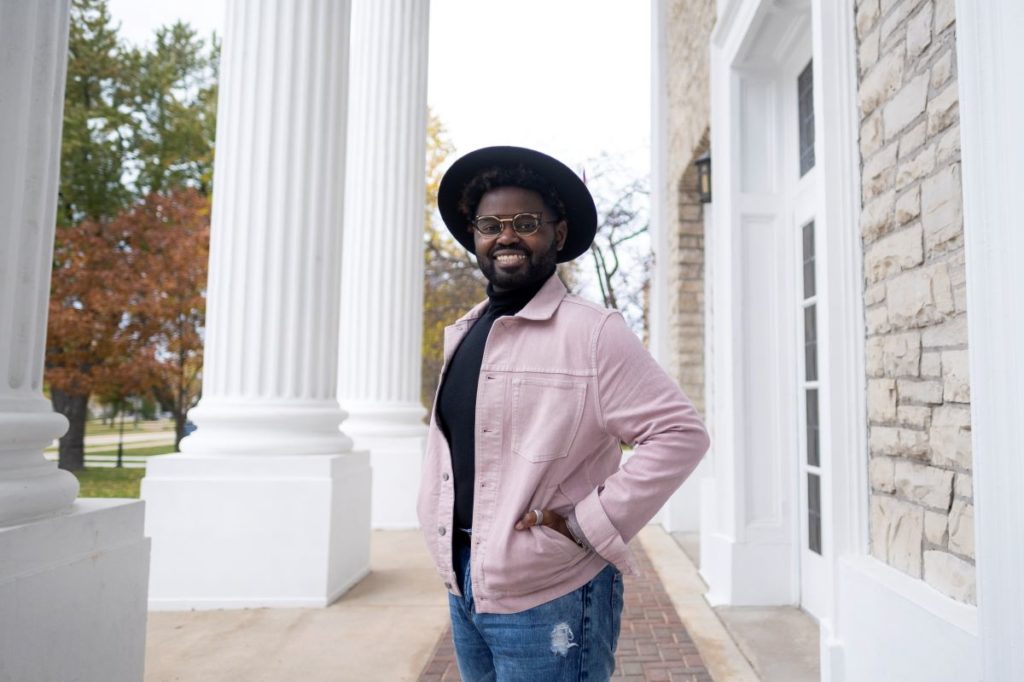
John Holiday
“One of the things I wanted to do in doing this show is to show my students what’s possible when you stretch yourself beyond what you think is possible. There are people who dare to dream bigger than themselves; they never stop learning, never stop growing. I wanted to show my students what that looked like.” / John Holiday, voice professor, on his successful journey through NBC’s popular singing competition, The Voice.
I: Inspired to help
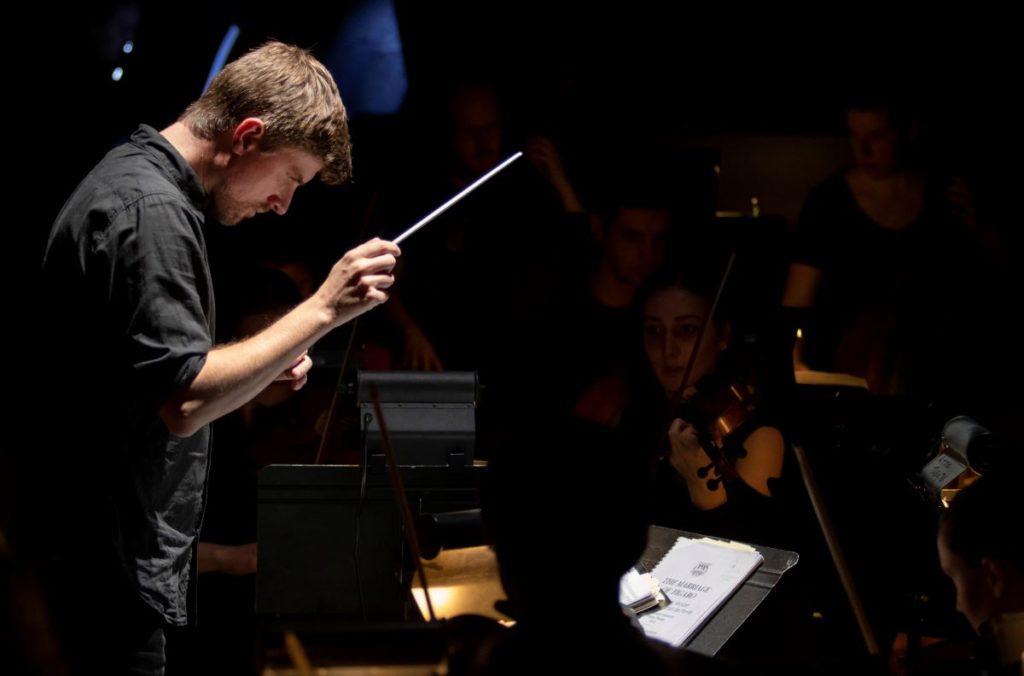
Andrew Crooks
“There is extreme anxiety in the arts community, and we wanted to offer a little help, a little hope, and as much sense of community and solidarity as we could possibly muster.” / Andrew Crooks, assistant professor of music, on helping to organize the Artist Relief Tree fundraiser to assist artists put out of work by the pandemic.
J: Journey through a crisis
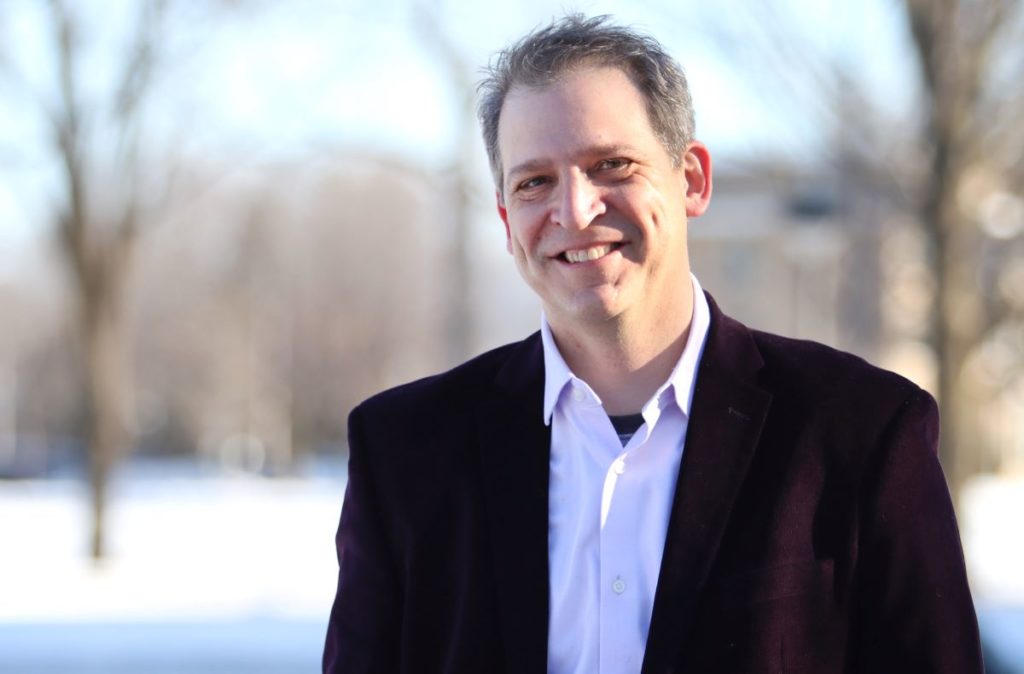
David Gerard
“We followed along with the economics and policy scholarship that was emerging in real time, and we also surveyed the social science and historical scholarship on how epidemics and pandemics have shaped the arc of history. There are elements of that material in just about every course I will teach going forward.” / David Gerard, John R. Kimberly Distinguished Professor of the American Economic System and associate professor of economics, on teaching economics during the pandemic.
K: Know what’s coming
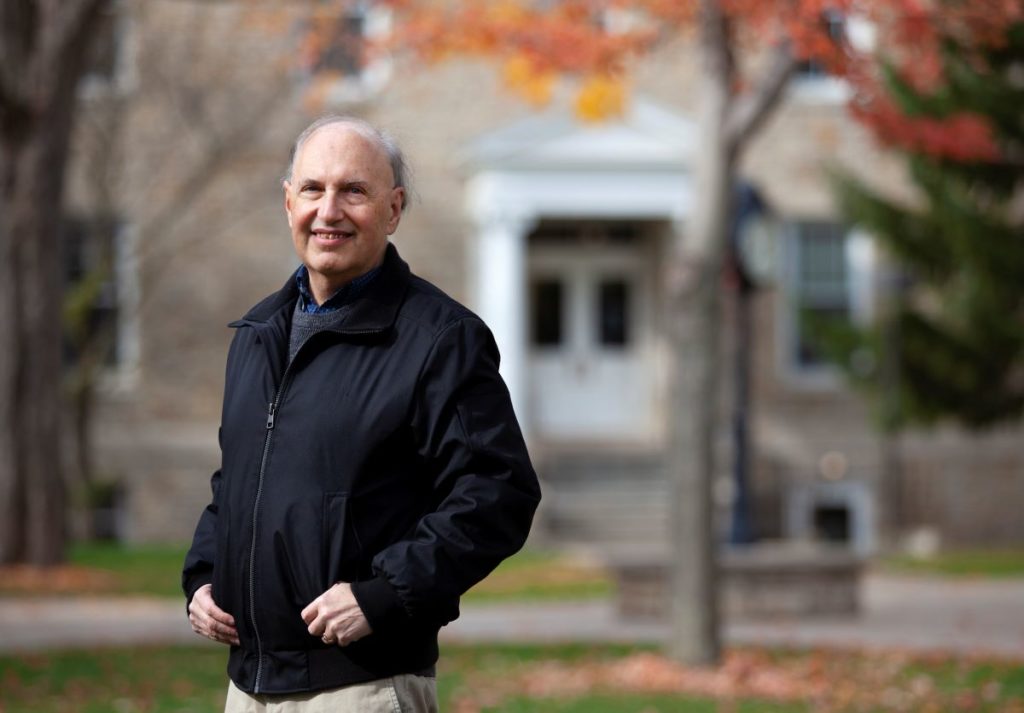
Jerald Podair
“Watch how voting by mail plays out across the country. Will there be delays? Fraud? Chaos? For better or worse, there will be no going back; mail voting is our future. In a decade, in-person voting will be considered as outmoded as manual typewriters.” / Jerald Podair, Robert S. French Professor of American Studies and professor of history, predicting what would follow the November 2020 election.
L: Labs go virtual
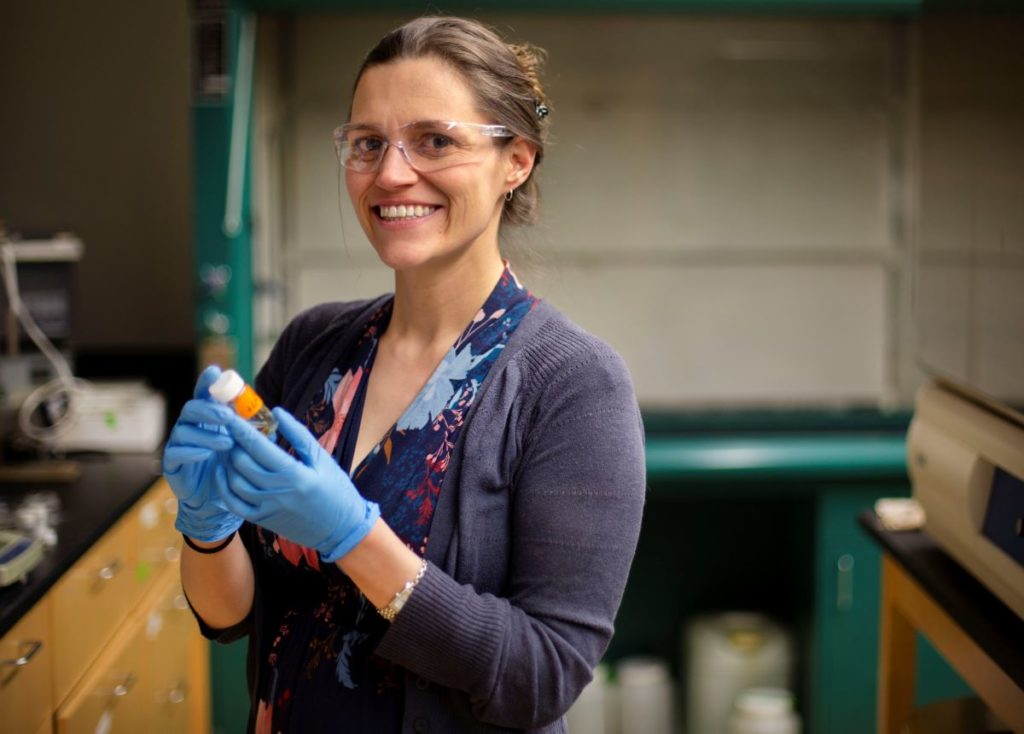
Allison Fleshman
“Well, the main take-away from a lab science is to practice the scientific method. So, all of my students will make a piece of art or collection of art that inspires them, and the catch is that they must document their work—hypothesizing, observations, detailing the chemistry involved, and documenting the procedure—in a detailed laboratory notebook maintaining the highest level of scientific rigor.” / Allison Fleshman, associate professor of chemistry, on getting creative in remote classes.
M: Music won’t be stopped
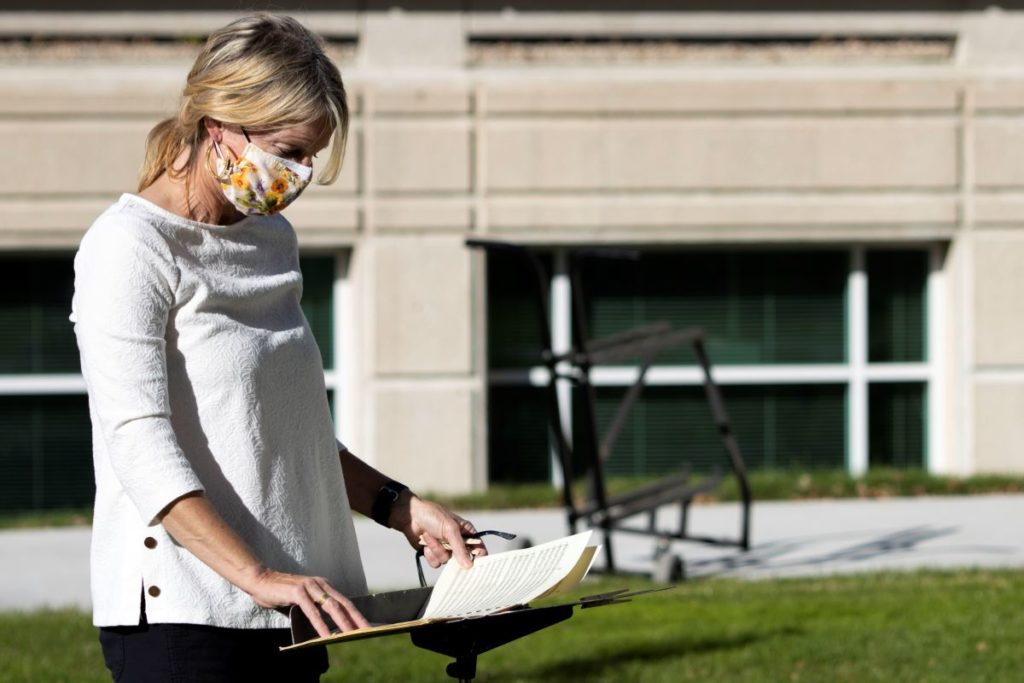
Patty Darling
“While the way we are creating music is different and sometimes awkward right now, it still gives us the chance to share this experience, work toward common goals, and be together.” / Patty Darling, director of the LU Jazz Ensemble, on keeping music ensembles together during the pandemic.
N: Novel ideas
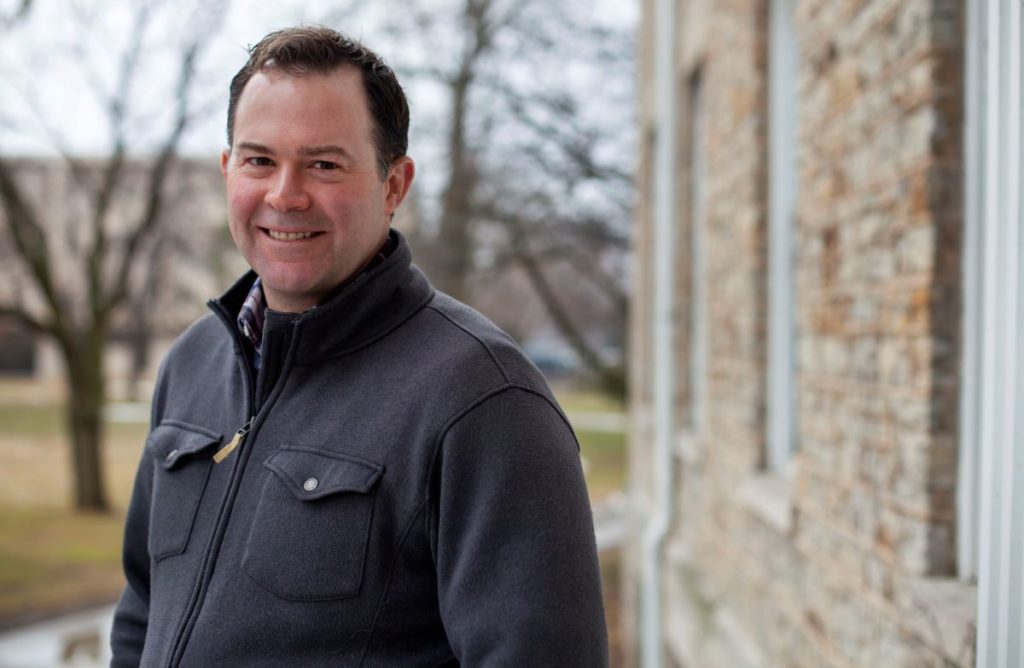
David McGlynn
“A Lawrence student might not publish a novel while a student, but our record shows that something foundational is happening here. They begin the long journey toward the larger goal.” / David McGlynn, professor of English and chair of the department that recently launched a creative writing major, on his former student, Andrew Graff ’09, getting national attention for his newly released Raft of Stars debut novel.
O: Ongiri convocation
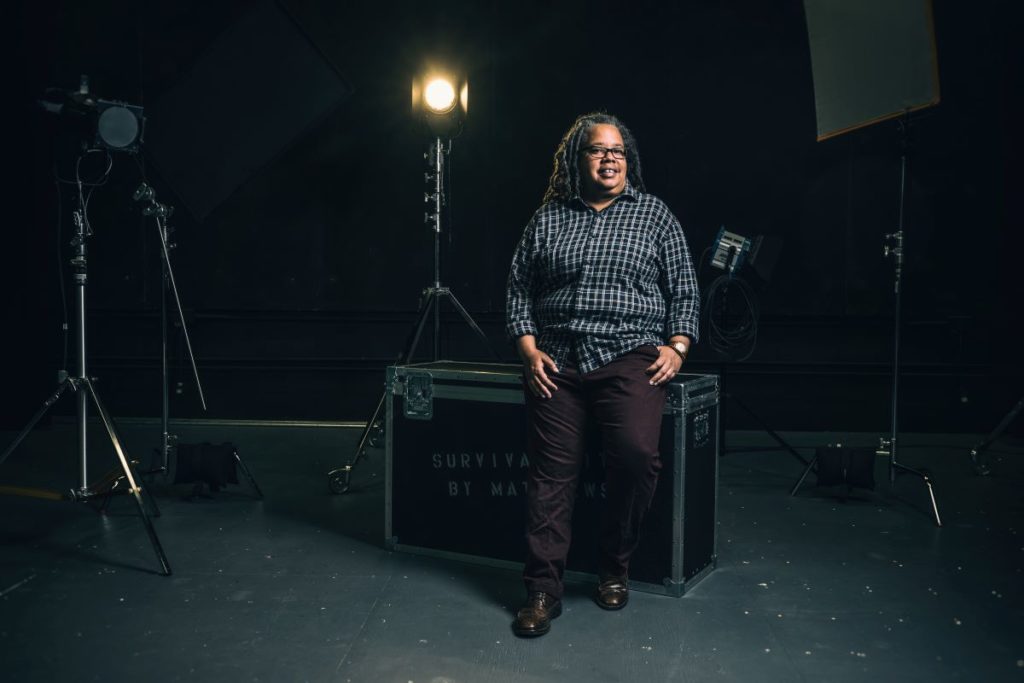
Amy Ongiri
“As a culture, we have tended to value winning over all other experiences, but we are all going to fail a lot in life, and we need to learn early on what it means and how to think about it.” / Amy Ongiri, Jill Beck Director of Film Studies and associate professor of film studies, on the importance of embracing and learning from our failures.
P: Pride, Champion of
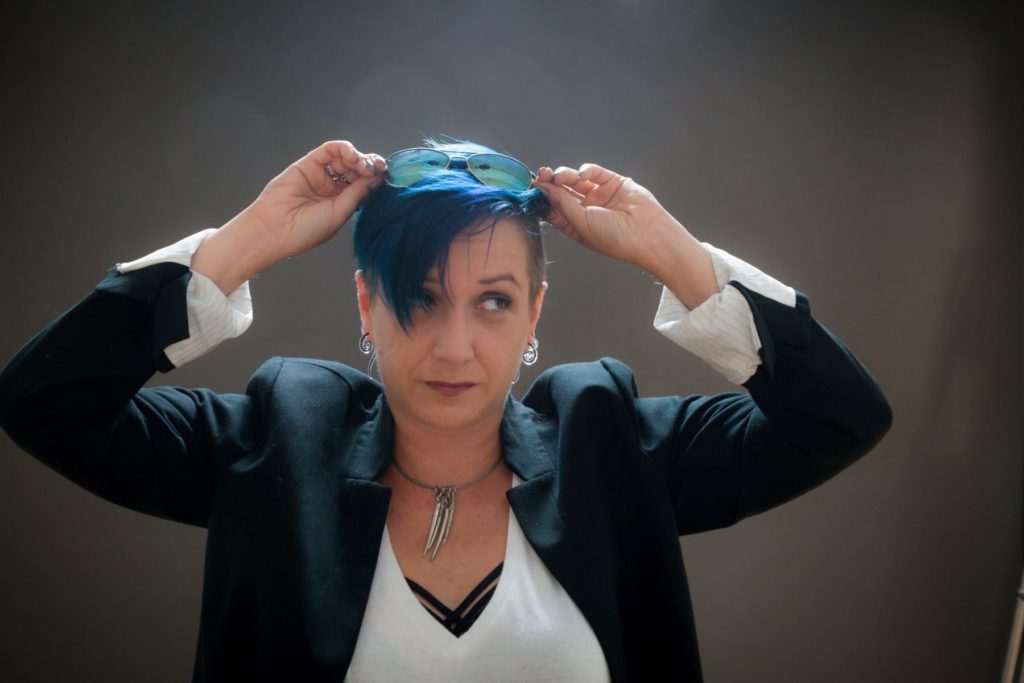
Helen Boyd Kramer
“The trans community was a baby when I started doing this work and when I wrote the book. Now the education about trans is at a whole different level. Every once in a while, as an activist and educator, it’s nice to go, hey, some of this education stuff works.” / Helen Boyd Kramer, lecturer in gender studies, on the work that led to her being named a 2020 Champion of Pride by The Advocate.
Q: Quest for knowledge
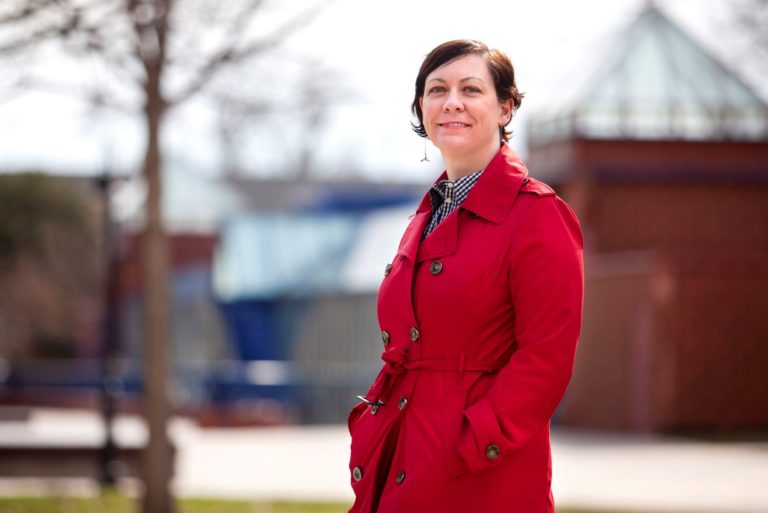
Beth Zinsli
“I want to work through the important questions with students. Learning to ask those sorts of questions is hard but it’s part of the joy of intellectual work. … In the spring 2020 term, the added challenge is doing this at a physical and temporal distance from students, but in our current context, shared intellectual engagement and joy feels more important than ever. / Beth Zinsli, assistant professor of art history and curator of the Wriston Art Center Galleries, on teaching from a distance.
R: Remote but in tune
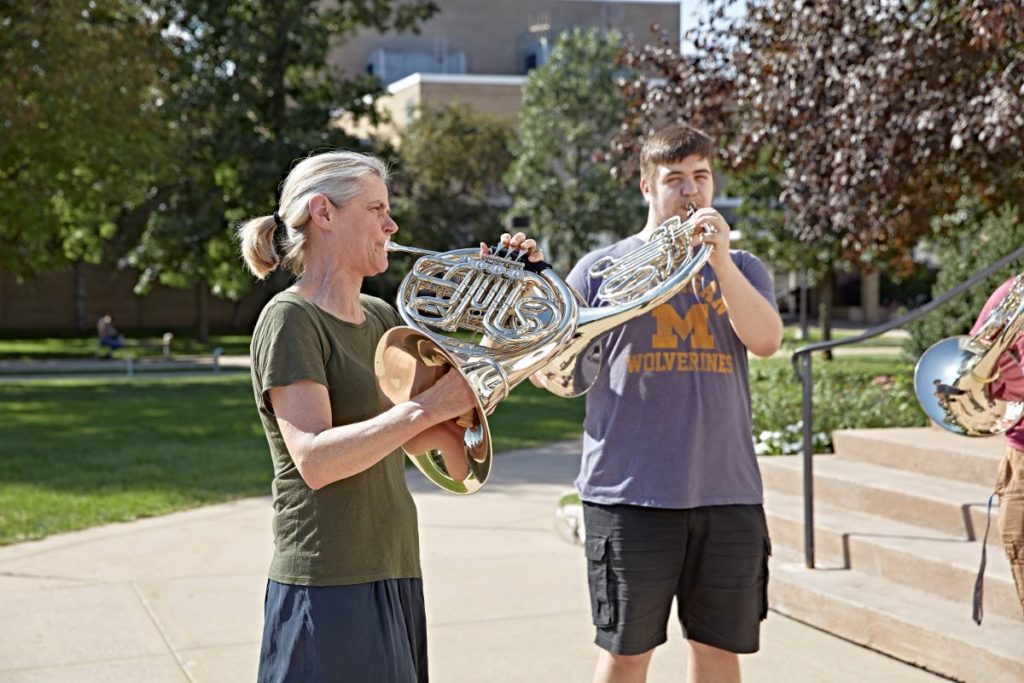
Ann Ellsworth
“I tell them they can hang out or not and that I’ll be back in 20 minutes, and I’ll come back and they are still there, hanging out, talking about student stuff. We had a prospective student join one meeting and I left them there to get acquainted because they can’t come to visit the campus. It’s super productive.” / Ann Ellsworth, assistant professor of music, on using Zoom to help her horn students stay connected despite the distance.
S: Songs of unity
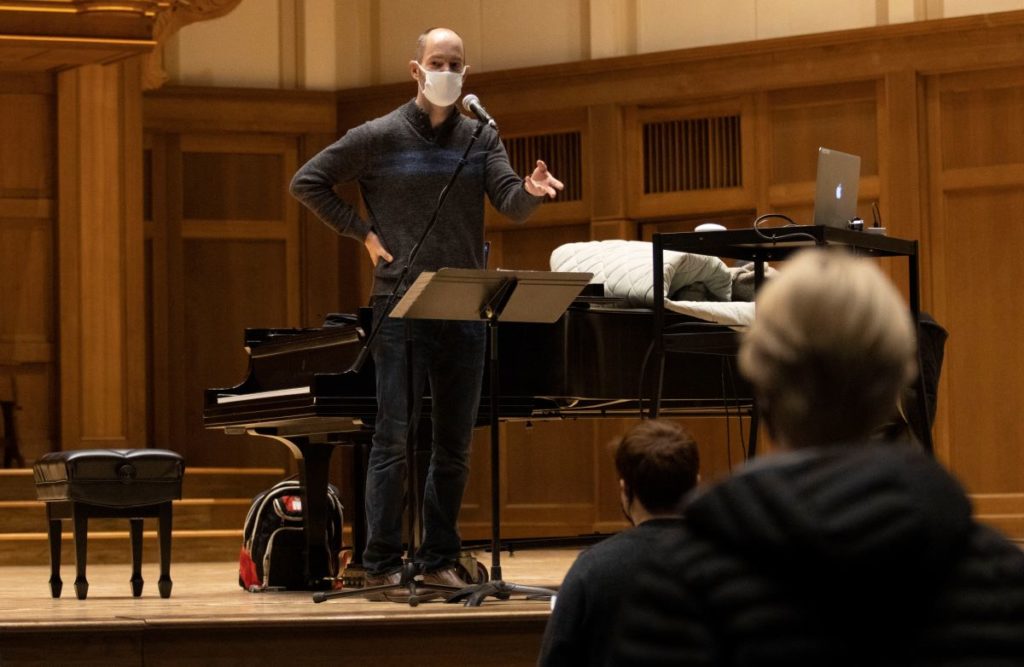
Stephen Sieck
“This is not the way we would have imagined a celebrated conservatory choral program working a year ago, but our students are making it work. Lawrence students need to sing.” / Stephen Sieck, associate professor of music and director of Concert Choir, on Conservatory students adapting during the pandemic.
T: Together, always
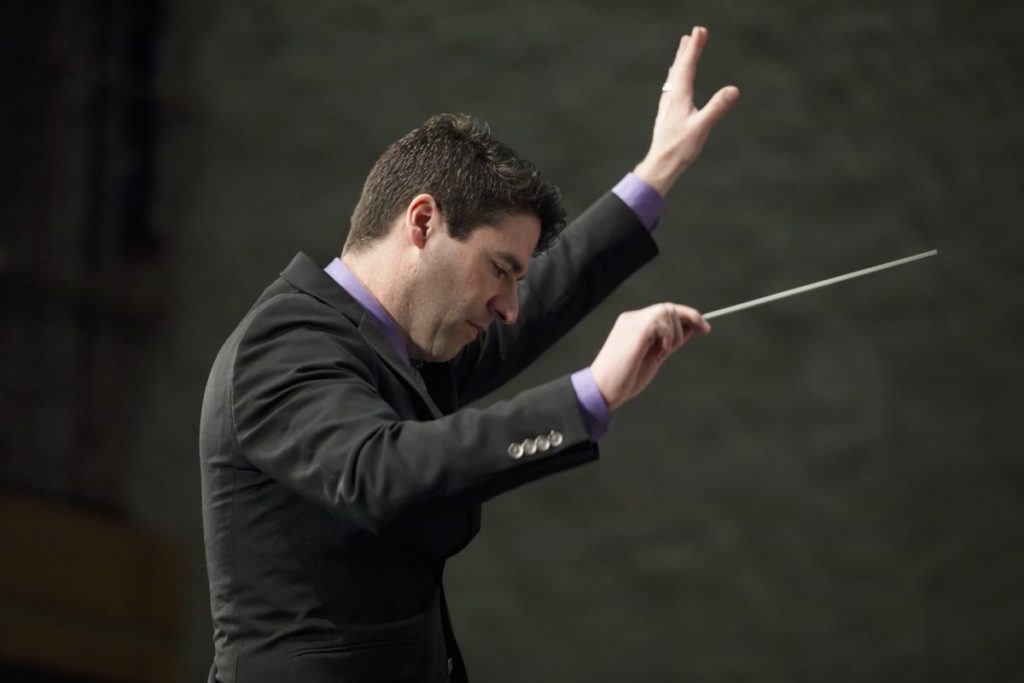
Matthew Arau
“My biggest concern was there would be two independent streams; there would be the online students and the in-person students and they would feel so separate from each other, and possibly doing totally different things. So, it was important to find a way that the students who are online still feel connected to Lawrence and particularly to the ensembles.” / Matthew Arau, associate professor of music, on using technology and other innovations to help music students learn and play together during the pandemic.
U: Universe, we got this
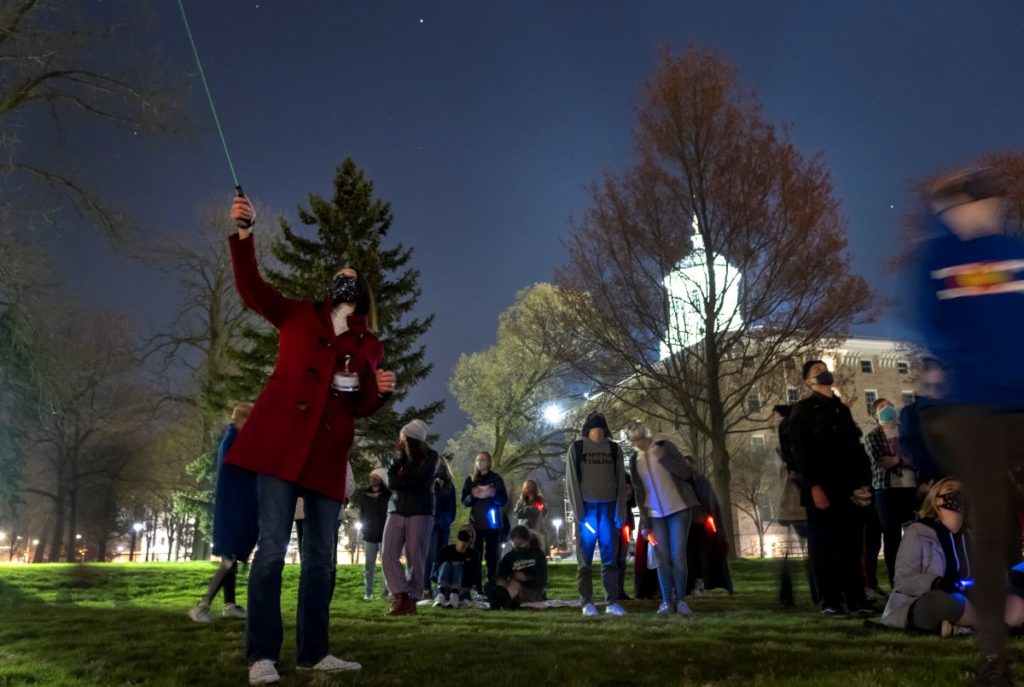
Megan Pickett
“We believe, now more than ever, that this is our time to shine. The circumstances aren’t ideal, but then [Isaac] Newton changed the world when he was at home in quarantine in 1665.” / Megan Pickett, associate professor of physics, on rising to the challenge of teaching and learning physics during the pandemic.
V: Virtual engagement
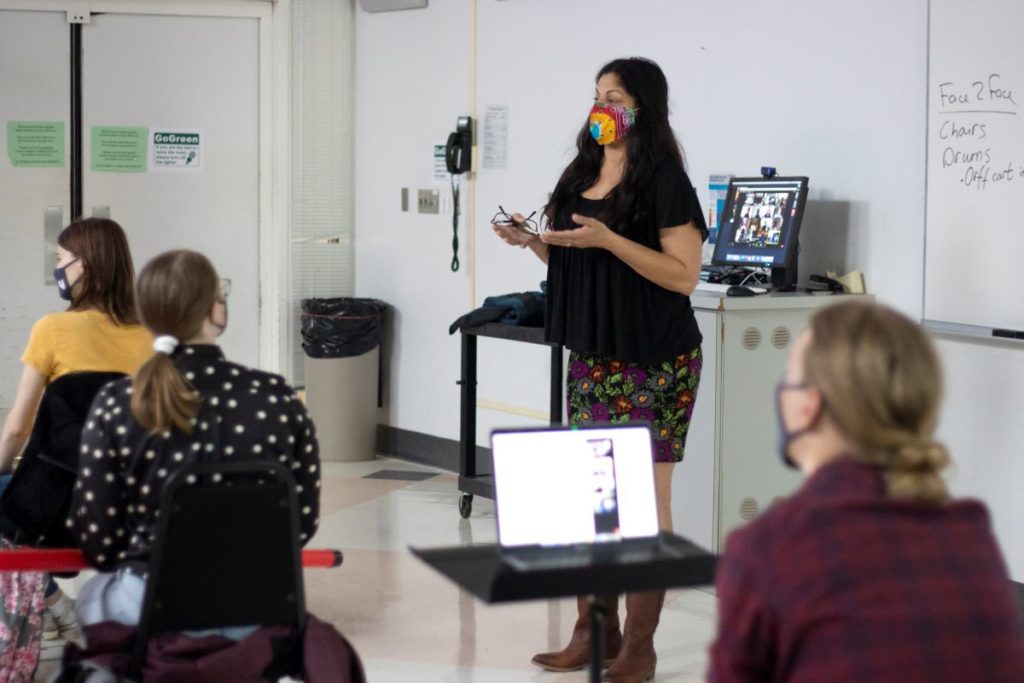
Leila Ramagopal Pertl
“This pandemic has given us an opportunity to think differently. What are the ways in which we can think about online engagement? Can we use our screens creatively, can we get to every child in a way that allows them to not only perform music but make their own music?” / Leila Ramagopal Pertl ’87, music education instructor, on Lawrence students creating virtual music workshops to reach area elementary students who were learning remotely.
W: World in need of care
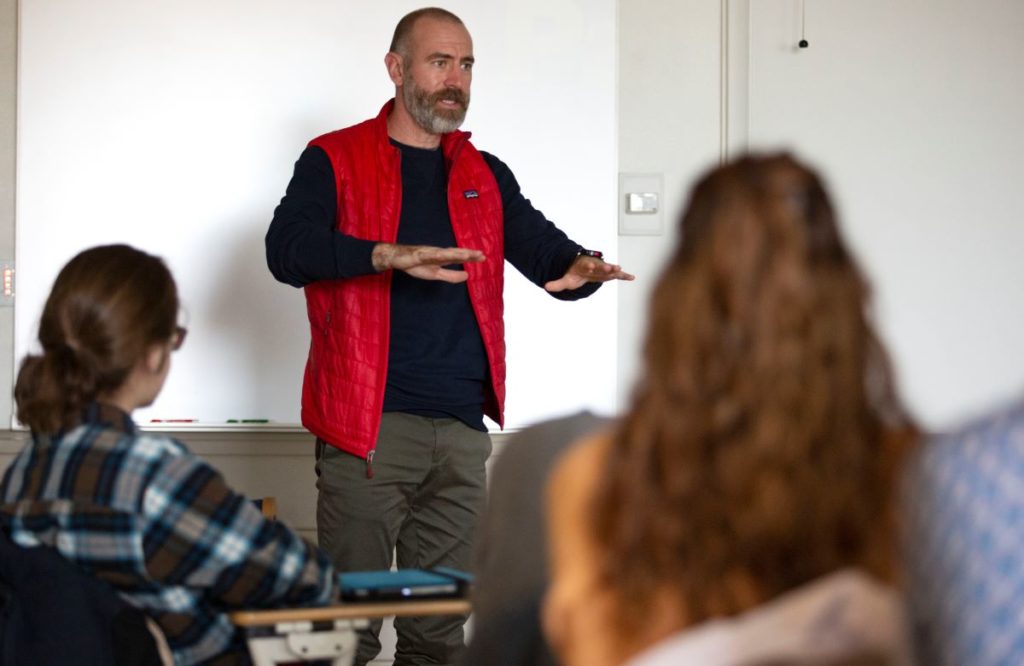
Jason Brozek
“I think all of us do feel the urgency of the climate crisis, and we see that in our students who are looking for the sort of hands-on, experiential learning that can help them become more effective environmental advocates, experts, and leaders.” / Jason Brozek, Stephen Edward Scarff Professor of International Affairs and associate professor of government, on the Environmental Studies program expanding to incorporate an environmental science major.
X: X factor
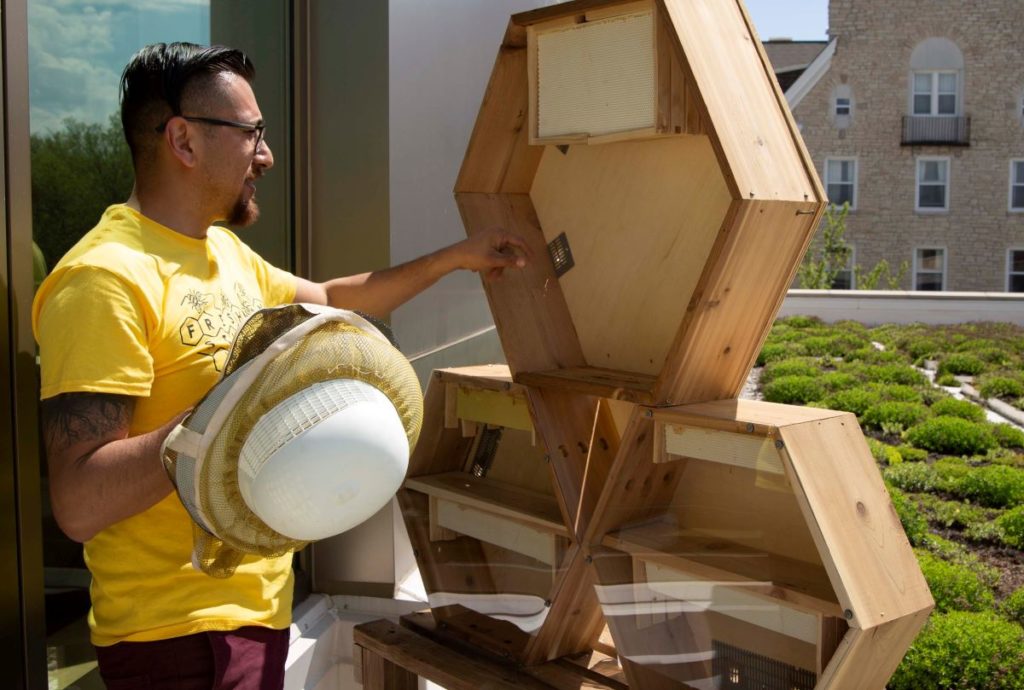
Israel Del Toro
“The biological sciences are increasingly using big data and novel computational technologies to tackle big questions about ecology, evolution, and health, just to name a few examples. By offering a data science minor to our students, we are preparing them with a marketable skill set that is broadly applicable regardless of what biological sub-discipline they choose to pursue.” / Israel Del Toro, assistant professor of biology, on the interdisciplinary nature of the statistics and data science minor, which launched this year.
Y: Your journey
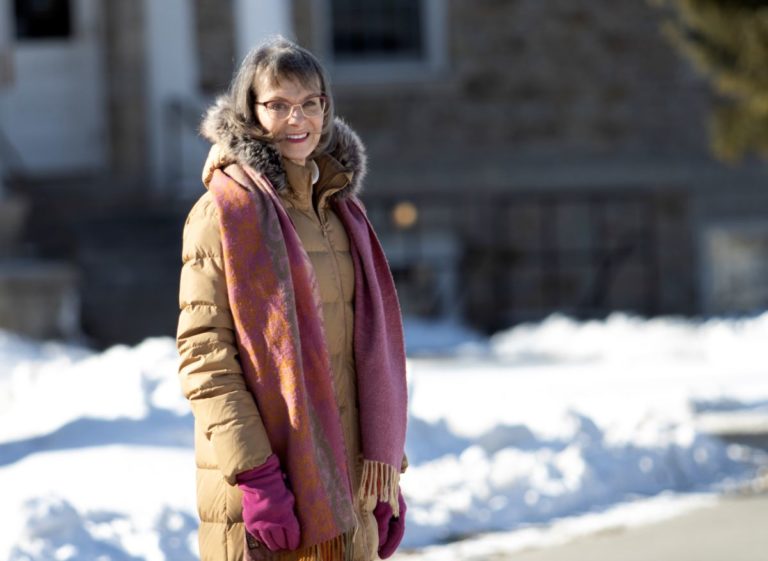
Eilene Hoft-March
“The mistakes we make—and I include myself—the questions we ask, and the challenges we encounter all give distinctive worth to the whole enterprise. The more we dig in, the more our work becomes part of our personal strategies for dealing with what’s beyond the classroom.” / Eilene Hoft-March, Milwaukee-Downer College and College Endowment Association Professor of Liberal Studies and professor of French, on helping to guide students through the intellectual journey.
Z: Zoom, Zooming, Zoomed
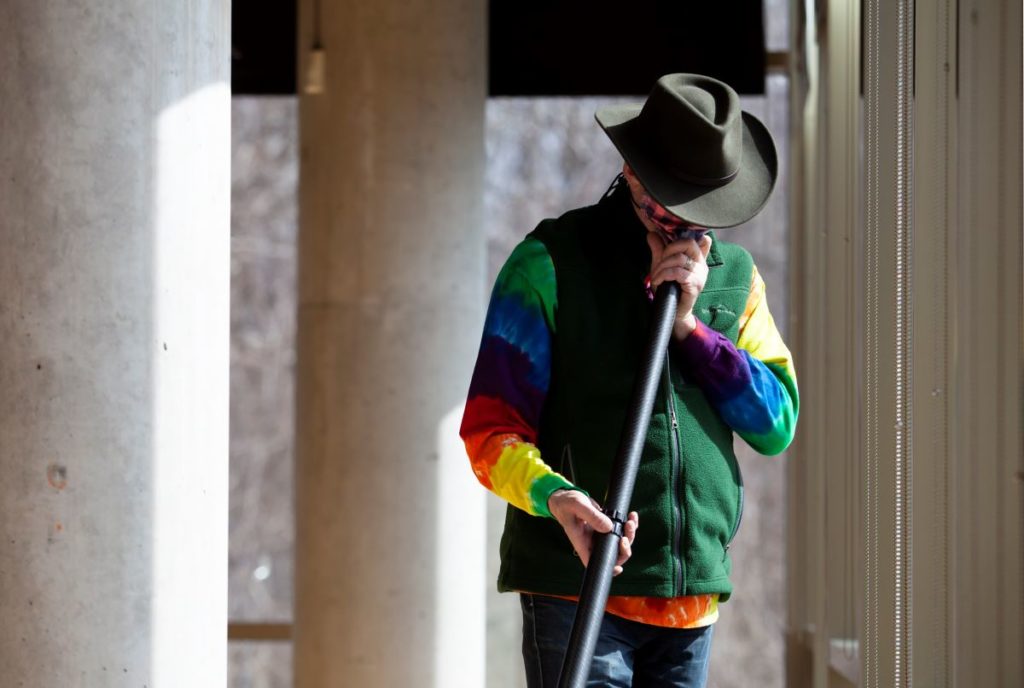
Brian Pertl
“I’m excited that we’re actually looking at technology and its possibilities and not just focusing on what we can’t do. Instead, we’re saying, ‘What can we do?’ I think that’s a very Lawrencey thing. We’re trying to teach our students to be creative and innovative and be problem-solvers.” / Brian Pertl, dean of the Conservatory, on infusing an attitude of resilience and opportunity.
